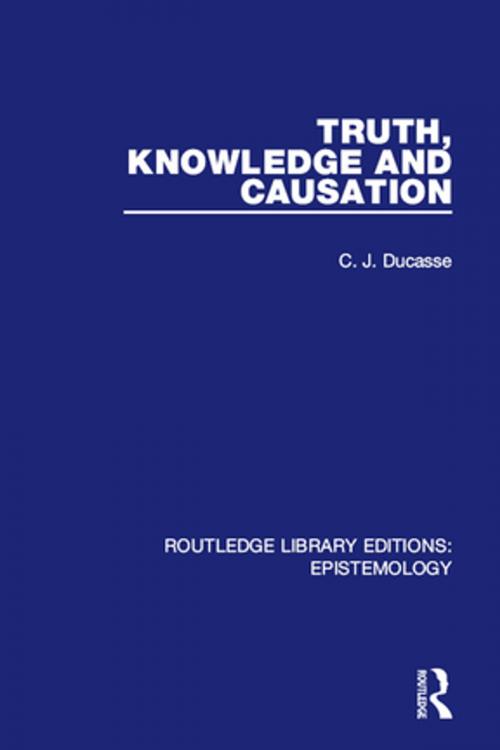| Author: | C. J. Ducasse | ISBN: | 9781317440406 |
| Publisher: | Taylor and Francis | Publication: | May 22, 2015 |
| Imprint: | Routledge | Language: | English |
| Author: | C. J. Ducasse |
| ISBN: | 9781317440406 |
| Publisher: | Taylor and Francis |
| Publication: | May 22, 2015 |
| Imprint: | Routledge |
| Language: | English |
Originally published in 1969. This book examines the fundamental concepts of metaphysics and of theory of knowledge. Topics treated include the nature of substance and of causation; their relation to natural laws, dispositions, and attributes; the nature of consciousness and purposiveness; of symbols, signs, and signals, and their relation to interpretation and objective reference; and the nature and criteria of truth.
The author holds that philosophy is by intent a science and that its becoming so requires precise and non-arbitrary semantical analysis of basic philosophical terms. He argues that philosophy then, like the other sciences, has practical importance: in its case this consists in its capacity to give to difficult practical decisions not only the efficacy insured by its application of the findings of the other sciences, but in addition some of the wisdom which is philosophy’s distinctive ultimate aim.
Originally published in 1969. This book examines the fundamental concepts of metaphysics and of theory of knowledge. Topics treated include the nature of substance and of causation; their relation to natural laws, dispositions, and attributes; the nature of consciousness and purposiveness; of symbols, signs, and signals, and their relation to interpretation and objective reference; and the nature and criteria of truth.
The author holds that philosophy is by intent a science and that its becoming so requires precise and non-arbitrary semantical analysis of basic philosophical terms. He argues that philosophy then, like the other sciences, has practical importance: in its case this consists in its capacity to give to difficult practical decisions not only the efficacy insured by its application of the findings of the other sciences, but in addition some of the wisdom which is philosophy’s distinctive ultimate aim.















